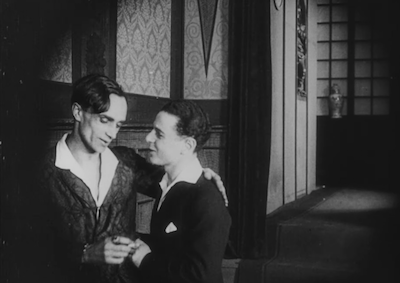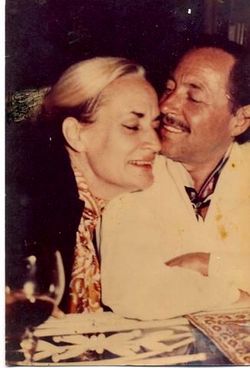Post
by Belle » Mon Feb 13, 2023 8:16 pm
This is part of an interview with Conrad Veidt made for a screen magazine in 1927 - nearly 100 years ago. In it Veidt talks about the difference between German and American cinema and what it's like to be an actor:
Someone accused Conrad Veidt, the German screen star, recently returned to America, of having said that he intended never to go back to Germany. What audacity! What falsehood! It is and always will be “Deutschland über Alles” for him. When Mr. Veidt was last here, only for a period of three months, he came at the invitation of John Barrymore, with whom he played in The Beloved Rogue. After that he went back to Berlin to bring his wife and baby here; he plans to remain for three years, his contract period.He picked up enough words at that time to tell the interviewer when he recently arrived: “New York is Dr. Caligari,” meaning, of course, obsessed, neurotic, queer.
“How were you able to understand your American director?” he was asked.“An interpreter,” he responded. Besides, a German translation of the story was made for him, which he studied until he became thoroughly familiar with it.“Do you feel you must change your view-point in order to have your acting appeal to the American public?”“No,” returned “Connie,” as he is popularly called abroad. He feels that character rôles, his specialty, are universal creatures, and therefore internationally understood. In his first picture, The Chinese Parrot, which will be directed by Paul Leni, another recent German importation, Veidt is to portray the rôle of a detective, from our point of view a character as typically American as the Statue of Liberty or Babe Ruth. We shall see.
Of course, Mr. Veidt has the advantage of having been trained under Max Reinhardt and created his reputation as a Shakespearean actor in Berlin, his birthplace.“Mrs. Veidt? Felicitas is her name,” he said proudly and with a proprietary air typical of a “Herr.” “She is very pretty; but, no, she will not go into pictures. Her rôle as wife and mother is more important.”That point was not even open to discussion. It was said with a tight upper lip and a Hohenzollern twist.“Besides, what would happen if the two of us met in the evening, tired from our screen work, and bringing some of the character we’re portraying into the home? Or, calling it temperament, and bringing that into the home! An actor should be excused for his temperament,” he went on, “because, after all, he has to live the character he portrays from nine in the morning until six at night, sometimes longer, so that at six-ten he can’t just simply throw it off, particularly when he is going to resume it the next day.” Shrugging his head and shoulders emphatically, he continued, “Yes, some of the sediments are bound to adhere to his receptive, impressionable sensitivities.” He has a way of opening wide his rather sharp, small, owl-like eyes in a challenging manner.“There is no person,” nervously lighting his eighth cigarette within fifteen minutes, “who is not affected by environment– unless, natürlich, that person is a cow.”
“How do you account for the huge success of American films over foreign ones, Mr. Veidt?”“The team-work existing here. From the director down to the last mechanic in the technical department, everybody and everything is ready for the production. From the moment the camera clicks only one axiom, one sentiment prevails: our film must be a hit! No personal interests are allowed to interfere; there is only one god– the picture! It means that everybody, even the most renowned actor, must subordinate himself to the one goal– the whole film.“Another thing,” he said, “all over Europe there are to-day a lot of people in the films who still play their rôles in the accepted style of yesterday. The younger element is kept at a distance. Not so in America! Every producer and every director of distinction is constantly on the lookout for new faces, new talent. Constant work is absolutely necessary to hold the star title in America. Germany makes the mistake of living in the past– in films, anyway. Not so in America; even historical pictures must be interpreted to the present generation intelligently and with a modern flavor.”
Catching himself waxing too enthusiastic over America and perhaps overshadowing his Heimat, he quickly added: “I am not saying all this to glorify America or because I have elected to spend the next few years in America making pictures. I believe that Germany has the material to make not only a half-dozen good pictures each year but as many as America does. But I also believe that first Germany must learn from America her wonderful methods of production and distribution of pictures.”We talked about the theatre, prohibition and prevailing economic conditions. Conrad Veidt declared that the musical comedies he saw here did not compare with those abroad, that Americans got drunk because they did not know how to drink, and that America is a vampire of gold that can lure the weakened, susceptible foreigner until he reaches satiety, but Germany… Ach Gott!!









